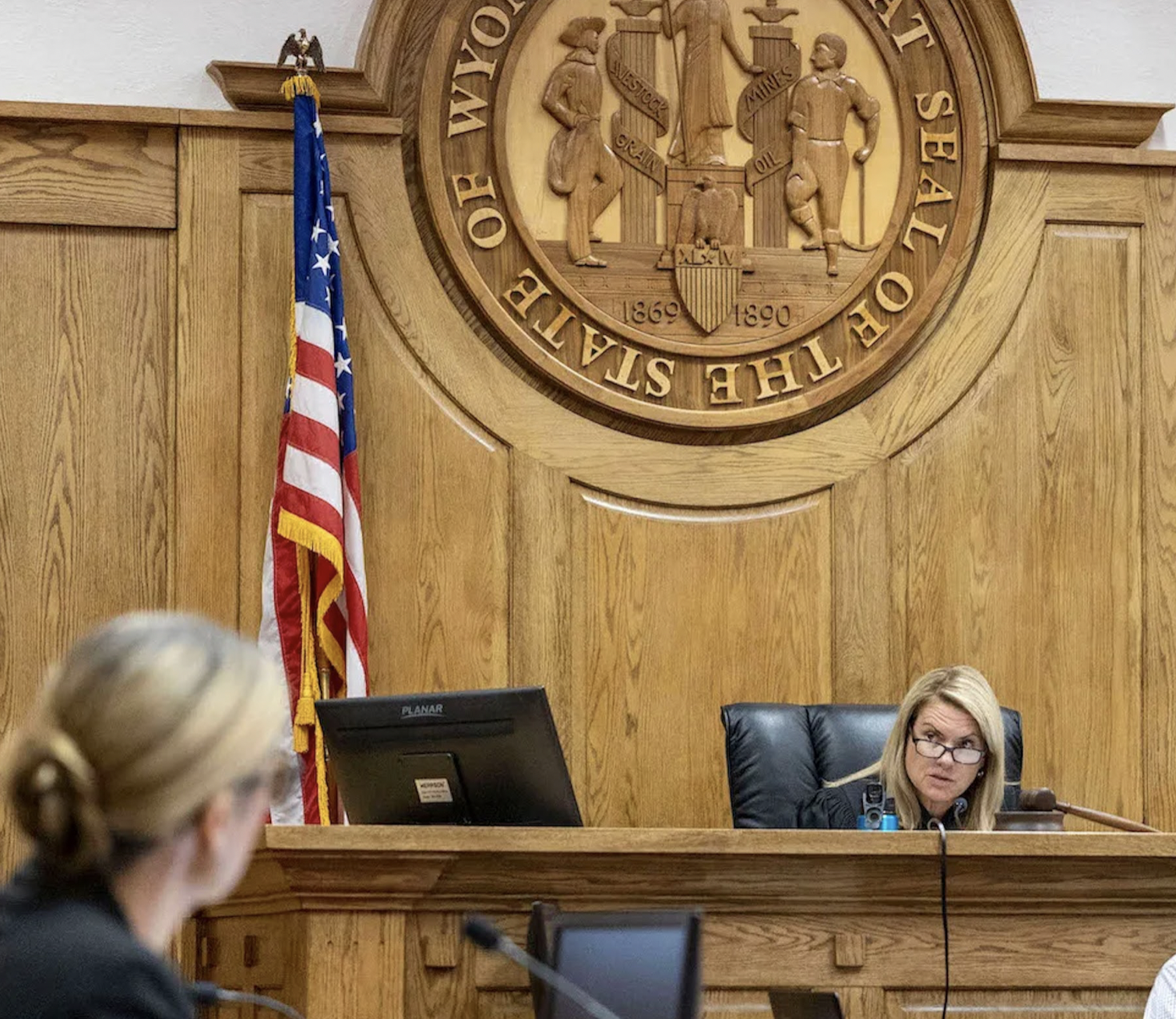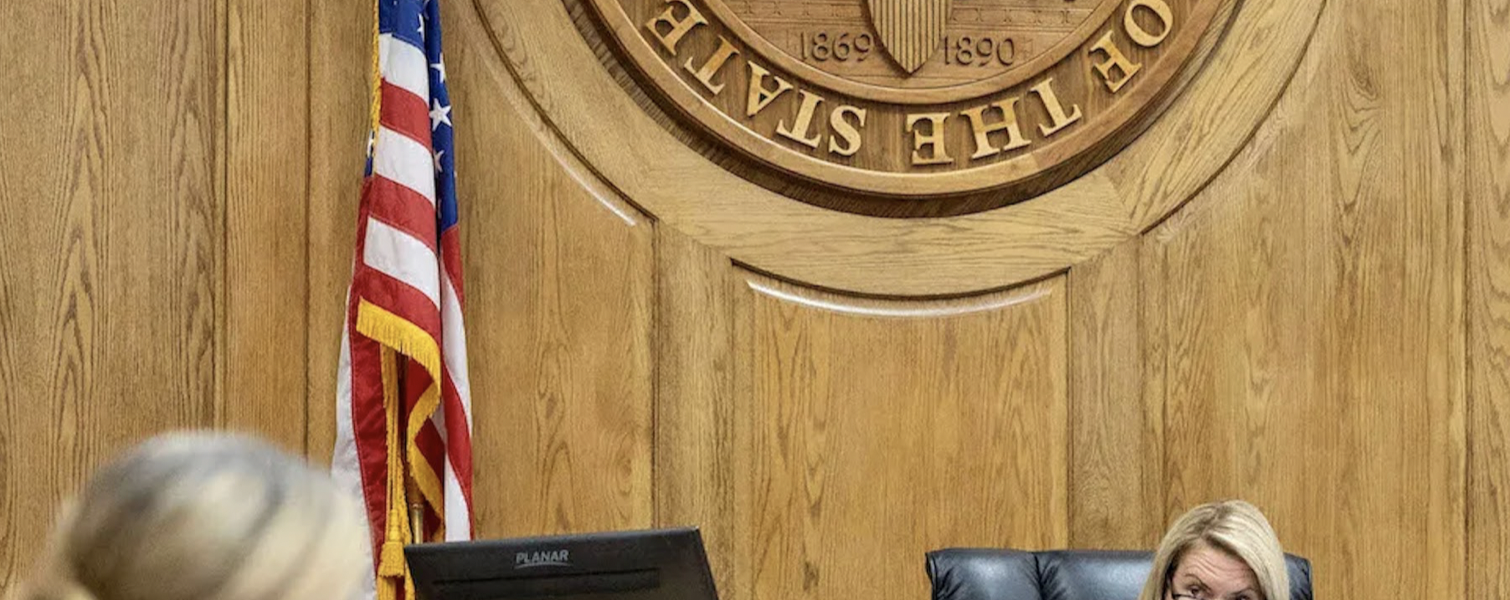Abortion ban opponents submit new OB-GYN impact study as court evidence

• Doctors reported ‘deep and pervasive impacts of state laws, with implications for workforce sustainability, physician health and patient outcomes.’
By Katie Klingsporn, WyoFile.com
Plaintiffs suing to block Wyoming’s abortion bans requested an addition to the court record Monday: a new study that finds OB-GYNs practicing in states that have banned abortions reported “deep and pervasive impacts” of those laws, with implications for workforce sustainability, physician health and patient outcomes.
The study, published in the Journal of the American Medical Association’s Network Open, offers a glimpse of the fallout that could unfold in Wyoming if the bans are enacted, according to plaintiffs, and should be considered as evidence.
“I think a lot of the anti-abortion activists do not and did not understand when they passed these laws the overall impact on OB-GYNs in general in all aspects of what we do in the context of women’s health,” said Dr. Giovannina Anthony, a Jackson OB-GYN who is one of the plaintiffs in the lawsuit. “And this [study] just validates what we’re all experiencing.”
The study lends empirical weight to an argument abortion proponents have made across the nation since the Supreme Court overturned Roe v. Wade in June 2022 — leaving the fate of abortion access up to individual states.
Wyoming had a trigger law on the books when the court ruling came out, which led to a ban of all abortions in the state except in cases of rape, incest and serious health risks for pregnant women.
Anthony and other plaintiffs sued the state to stop the ban, and subsequently sued to prevent two additional bans passed in the Legislature from being enacted. The issue has been tied up in court since, with court orders blocking ban enforcements amid debate over constitutionality. Abortions remain legal in Wyoming, though few OB-GYNs offer elective procedures here.
The study
Since the Supreme Court’s Dobbs decision, 14 states have enacted near-complete abortion bans, and several others have restricted the procedure earlier in pregnancy than the standard set by Roe v. Wade. Physicians in those states face penalties such as loss of their license, fines and felony charges for violating the bans.
While researchers have been studying patient impacts intensely, the study states, less focus has been applied to OB-GYN consequences. That’s what co-authors Erika L. Sabbath, Samantha M. McKetchnie, Kavita S. Arora, et al, set out to do.
The study included interviews with 54 obstetrician gynecologists from 13 states that had banned abortion as of March 2023. The doctors practiced in general obstetrics and gynecology, maternal-fetal medicine and complex family planning.
The study identified two major areas affected by bans. The first are clinical impacts. Those include delays in care — waiting until patients become more sick to justify a decision or until a legal sign-off to a medical exception is obtained — restrictions on counseling patients on pregnancy options and the inability to provide appropriate care or make referrals for such care.
The second are personal impacts. Fifty participants, or 93%, reported “situations in which they or their colleagues could not follow clinical standards due to legal constraints,” according to the study. The ambiguous language of many laws within an untested legal environment may contribute to questions of legal risk, the study added.
The study held up an example of one doctor, who said, “I know what the right thing is to do for my patients, but I am carrying this legal worry and worried about what could happen to my family at the same time. And that’s a terrible thing to feel.”
Meanwhile, 47 participants, or 87%, reported worries about practicing in an uncertain legal climate, with fears centered on potential for criminal prosecution, loss of medical license, loss of income or incarceration.
Six participants, or 11%, had moved their practices to states with stronger abortion protections. Meanwhile, 60% had entertained the idea of leaving their state, according to the study.
“This qualitative study identified complex, wide-ranging impacts of state abortion bans on OB-GYNs, leading to profound shifts in care provision and many questioning whether they could continue practicing in those states,” the study concludes. “This is 1 of the first empirical studies of Dobbs v Jackson as an occupational health hazard for OB-GYNs, in addition to a public health hazard for patients.”
Evidentiary support
In a December hearing, parties to Wyoming’s abortion ban litigation asked 9th District Court Judge Melissa Owens to skip trial and issue judgment in their favor. Plaintiffs who sued the state argue the bans are unconstitutional, while defendants maintain they are legal.
Owens has yet to issue a ruling on the matter.
Since the Sabbath’s JAMA article wasn’t published until Jan. 17, plaintiffs could not have presented it at the time of the December hearing, lawyers stated in a Monday filing requesting its inclusion in the court record.
Though it does not raise any new issues, the study “provides additional evidentiary support for issues already before the Court,” the filing states. Those issues include: physicians are unable to apply vaguely worded exceptions to abortion bans similar to those in the Wyoming bans; such vaguely worded exceptions result in the delay or denial of essential medical care; abortion bans are inconsistent with the medical standard of care; and abortion bans are negatively impacting the mental health of physicians.
The findings are consistent with Anthony’s own experience, she said Tuesday.
“The language in a lot of these laws is really ambiguous,” she said. “And when the consequences of breaking that law are so draconian and you might lose your license, your ability to make a living, your family because you might go to prison … That’s super stressful.”
Pregnancy-related emergencies often occur in the middle of the night or with little time to make a medical decision, which means OB-GYNs don’t always have adequate opportunity to obtain legal advice if they are unsure of whether their actions can be construed as aiding an abortion, she said. This can lead to harmful outcomes for patients.
“It’s really difficult to wrap your head around the choice of either doing what you’ve been trained to do and knowing that it’s the right thing and trying to avoid a felony charge and the ramifications of the state not agreeing with your treatment plan,” she said.
Wyoming already struggles to provide sufficient maternity care to its population. In the last decade, three birthing units have closed and many OB-GYNs have left the practice for a variety of reasons. An abortion ban would only make it harder to recruit young doctors, Anthony said; the legal landscape is too rife with risks.
Mike Leman, legislative liaison for the pro-life Catholic Diocese of Cheyenne, had not yet read the study when reached Tuesday. But, he said, he recognizes the issue is nuanced and believes a balance can be reached that addresses both sides’ concerns.
“We certainly don’t want unintended consequences,” Leman said. “We don’t want a lack of clarity for OB-GYNs … The problem is that it’s really hard to get anybody to help us navigate the fine-tuning. Can we protect the unborn and make sure we’re still accounting for all of those particular situations?”
WyoFile is an independent nonprofit news organization focused on Wyoming people, places and policy.





